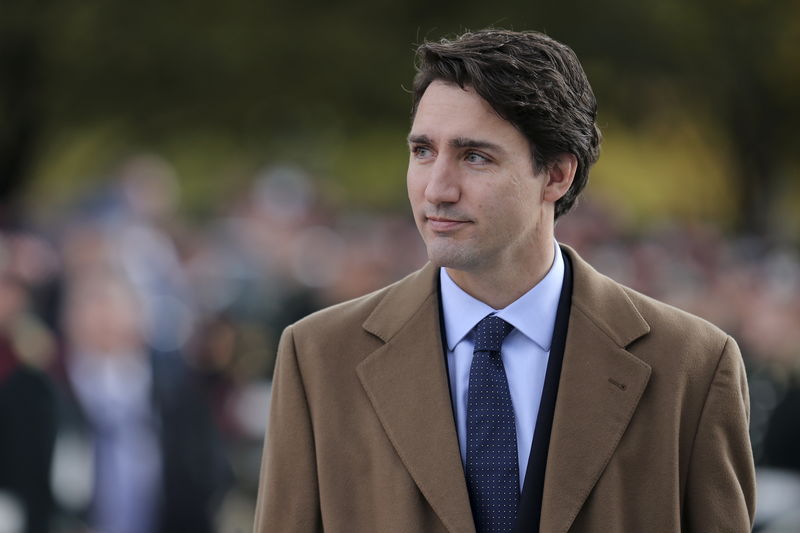By Anna Mehler Paperny
TORONTO, May 1 (Reuters) - Canadian Prime Minister Justin Trudeau and his ministers faced questions in parliament on Tuesday a day after Reuters reported that Canada wants the legal authority to turn back thousands of asylum seekers crossing the border illegally.
A Canadian official familiar with the matter told Reuters that Canada wants to amend a bilateral agreement to allow it to block border-crossing refugee claimants but that the United States is not cooperating. the Safe Third Country Agreement, or STCA, asylum seekers who arrive at a formal Canada-U.S. border crossing going in either direction are turned back and told to apply for asylum in the first country they arrived in.
Canada wants the agreement rewritten to apply to the entire border.
More than 26,000 asylum seekers have crossed illegally into Canada from the United States to file refugee claims in the past 15 months, walking over ditches and on empty roads along the world's longest undefended border.
The U.S. Department of Homeland Security has said it is reviewing Canada's proposal but has not made a decision.
Asked about the negotiations during parliamentary question period on Tuesday, Trudeau said his government had been in contact with American counterparts "for months" on "many issues relating to our border."
Immigration and Refugee Minister Ahmed Hussen would not say what Canada is asking the U.S. for, telling reporters there were no "formal negotiations" ongoing.
But political opponents contrasted the Liberal government's welcoming rhetoric with officials' efforts to block asylum seekers.
"If we are entering into talks with the Americans ... what kind of message does it send to the Americans if you've got the ministers out saying: 'We're not negotiating?'" said Conservative immigration critic Michelle Rempel, who has called since early 2017 for the authority the government is said to be seeking.
New Democratic Party critic Jenny Kwan slammed Canada's efforts to turn back asylum seekers, calling the idea unfeasible and saying it would force border crossers underground.
"The Liberal government has failed to come up with a plan in the face of (U.S. President Donald) Trump," Kwan said.
Many of the asylum seekers with whom Reuters has spoken said they would have remained in the United States were it not for Trump's policies and rhetoric.
Trudeau faces "a delicate balance" in trying to appear in control of border crossings while maintaining an image of compassion, said Ipsos pollster Darrell Bricker.
In addition to critical public opinion, Trudeau's government has faced complaints from the province of Quebec, where the vast majority of border crossers have arrived.
Bricker said the more that migration was in the news, the more Canadians disapproved of the government's handling of the file.
<^^^^^^^^^^^^^^^^^^^^^^^^^^^^^^^^^^^^^^^^^^^^^^^^^^^^^^^^^^^ For graphics on the impact asylum seekers are having in Canada, see
tmsnrt.rs/2HCp4aD
^^^^^^^^^^^^^^^^^^^^^^^^^^^^^^^^^^^^^^^^^^^^^^^^^^^^^^^^^^^>
